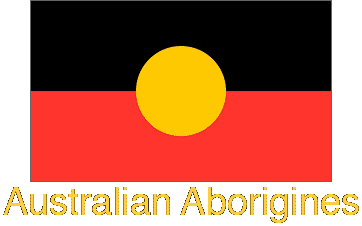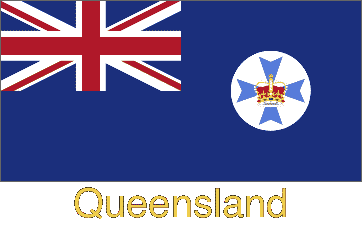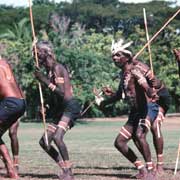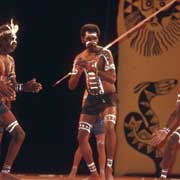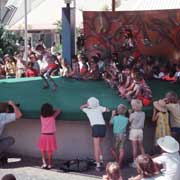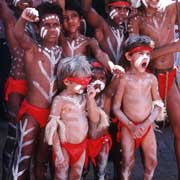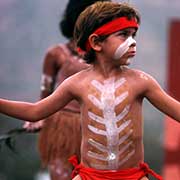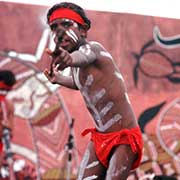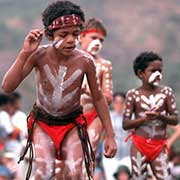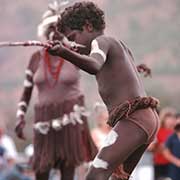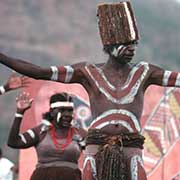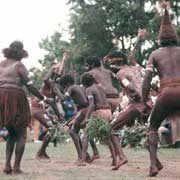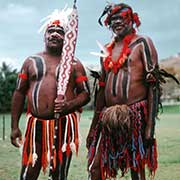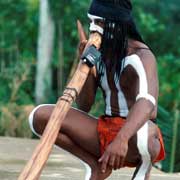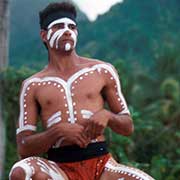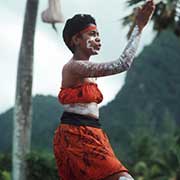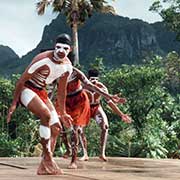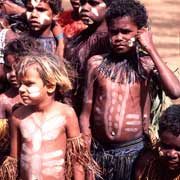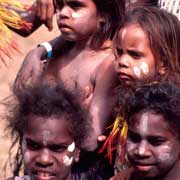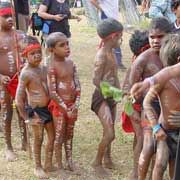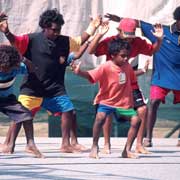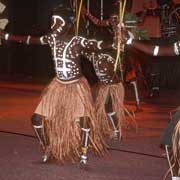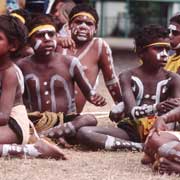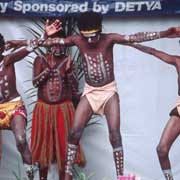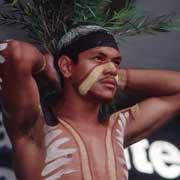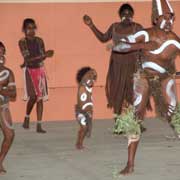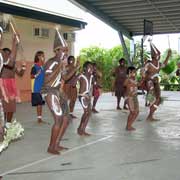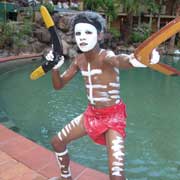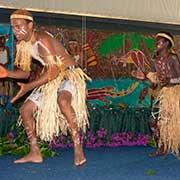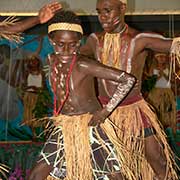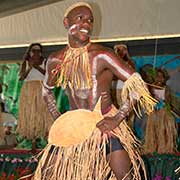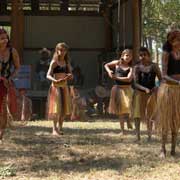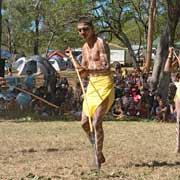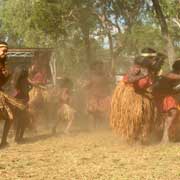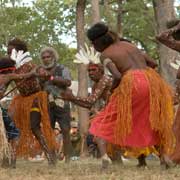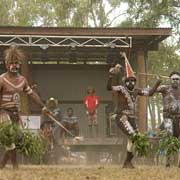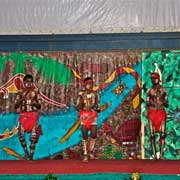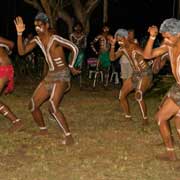Photos of Aboriginal Dancing from Queensland, Australia
Aboriginal Dancing from Queensland
Aboriginal culture is alive and well in Queensland, in remote communities like Kowanyama, in the south of Cape York peninsula, and among the Lardil people on Mornington Island in the southern Gulf of Carpentaria. The “Woomera Dancers” have become well known all over Australia and also abroad. But culture also lives in towns like Cherbourg, about 150 kilometres to the north west of Queensland's capital Brisbane; Cherbourg is the home of the dance group “Wakka Wakka”, the name of the Aboriginal tribe whose traditional country this is.
you may then send it as a postcard if you wish.
The enthusiasm of these youngsters makes sure the culture remains strong. They performed in Townsville, at the Festival of Pacific Arts, a celebration of Culture and Arts of the countries of the Pacific, held every four years in different locations around the Pacific. So four years later, at the same festival, but now in Rarotonga on the Cook Islands, there was great interest in the performances of the “Kunjal” dance group from northern Queensland; Aboriginal dances are always very popular in those festivals, as they are so completely different from those of the Pacific Islands.
Queensland is host to many festivals celebrating Aboriginal culture; the Laura Aboriginal Dance Festival is held every two years and attracts mainly groups from the Cape York area, like Lockhart River, a coastal Aboriginal community and the northernmost town on the east coast of Cape York Peninsula with a population of 542, mostly Aboriginal and Torres Strait Islanders, whose descendants were forcibly moved to the area in the beginning of 1924; they uniquely use drums in Aboriginal dancing, eagerly taken up by the children. A similar situation exists in Injinoo, on the west coast, which also displays both Aboriginal and Torres Strait Islander influences. This could be observed at the Croc Festival, a three-day 100% drug, alcohol and tobacco-free event, held annually since 1998 in a number of locations in remote and rural areas of Australia. And in 2010 another location was added: the Weipa Fest, held in Weipa, the largest town in Cape York, on the Gulf of Carpentaria.
Cairns also holds small festivals, like the Parramatta School Festival where children from schools in the area may perform; the Pamagirri Aboriginal Dancers are based at the Rainforestation Nature Park near Kuranda and perform a powerful, exciting show of traditional dance. There may be shows at places like the Palm Royale Resort, performed by regional groups, like the dance groups from Djarragun College, a school with indigenous students 24 kilometres from Cairns in Gordonvale. In return other groups may perform at the school, like the Lockhart River Aboriginal Dance Group and the dance group from the famous Tjapukai Aboriginal Cultural Park in Cairns.
